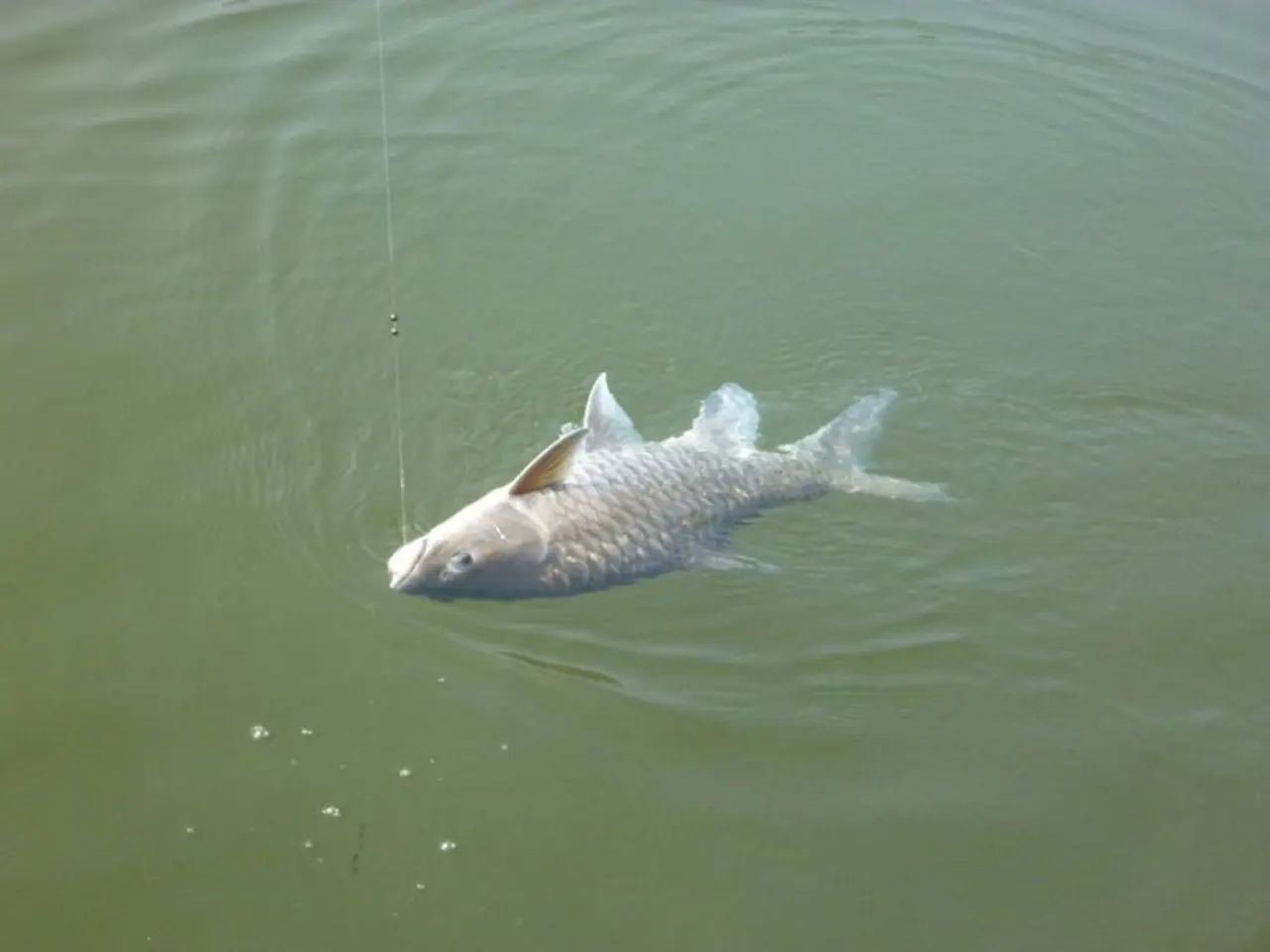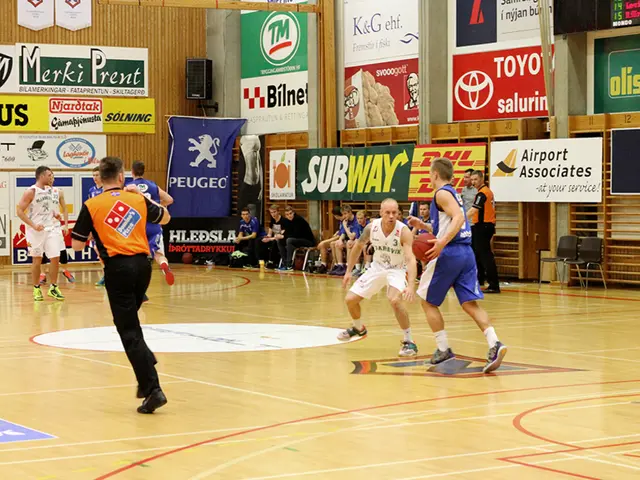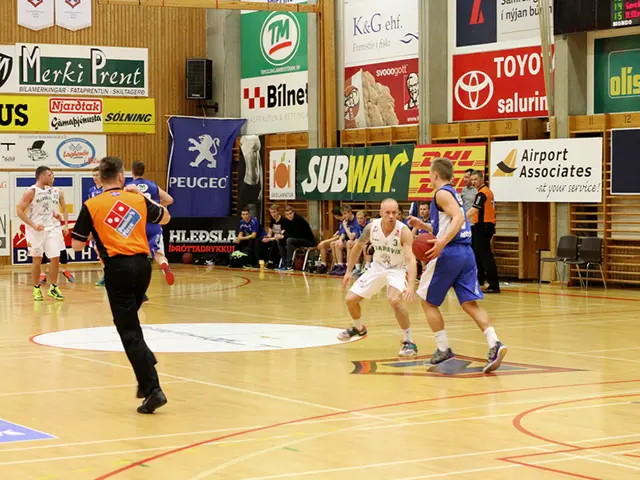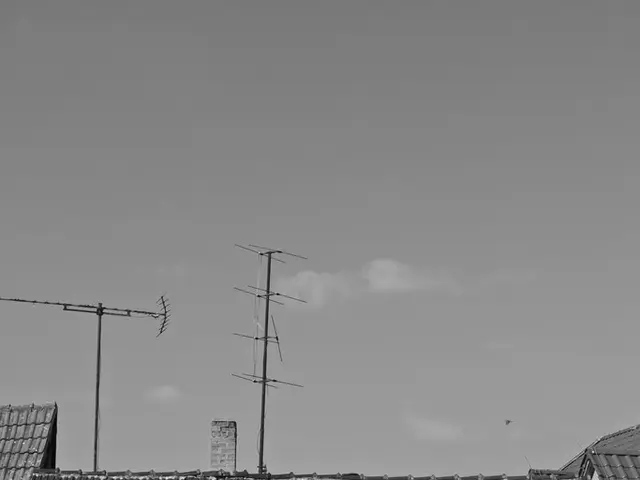Arrest Warrants Issued: Alaska Halibut Poachers Charged for Illegally Capturing over 5 Tons
In a significant development, a federal grand jury in Alaska has indicted five commercial fishermen for their alleged involvement in an illegal halibut harvest scheme that spanned from 2019 to 2023. The indicted individuals are Jonathan Pavlik, Vincent Jacobson, Kyle Dierick, Michael Babic, and Timothy Ross.
The U.S. Department of Justice announced the indictment on August 4, 2023, stating that the group orchestrated the scheme using the fishing vessel Bad Intentions. The case will be prosecuted in the U.S. District Court for the District of Alaska.
The indictment centres around the fishing vessel Bad Intentions, with a transfer of more than 9,600 pounds of halibut to the fishing vessel New Era between August 31 and October 11, 2023, being a significant part of the alleged illegal activities.
Jonathan Pavlik, the alleged ringleader, faces the most serious charges, including four counts of conspiracy, five counts of unlawful sale of halibut, and five counts of false labeling. He is accused of organizing the scheme and using his fishing operations to circumvent Individual Fishing Quota (IFQ) regulations.
The other four men each face one count of conspiracy. The accused then sold the halibut to a processor using false documentation that concealed the illegal activity.
Alaska regulates its halibut fishery through a quota system to ensure sustainability and prevent overfishing. NOAA Fisheries issues IFQ permits under strict rules and requires detailed documentation of all landings to maintain compliance. However, the defendants are alleged to have violated these regulations.
If convicted, the defendants could also face forfeiture of proceeds and equipment related to the alleged crimes. The penalties for violating the Lacey Act, including in illegal halibut harvest schemes in Alaska, can include civil and criminal consequences. Civil penalties can reach up to $10,000 per violation, while criminal penalties may involve imprisonment for up to five years and fines of up to $250,000 for individuals and $500,000 for organizations.
The alleged illegal halibut harvest scheme involved the illegal harvest of more than 10,700 pounds of halibut, in addition to violating the Lacey Act, falsifying landing records, misusing Individual Fishing Quota (IFQ) permits, and moving fish between vessels without required observers on board.
The defendants are scheduled for initial court appearances before U.S. Magistrate Judge Matthew M. Scoble in Juneau.
[1] Source for Lacey Act penalties: U.S. Fish & Wildlife Service. (n.d.). Lacey Act Enforcement. Retrieved August 8, 2023, from https://www.fws.gov/enforcement/lacey-act/
[3] Source for Alaska-specific penalties: U.S. Fish & Wildlife Service. (n.d.). Alaska Fisheries. Retrieved August 8, 2023, from https://www.fws.gov/alaska/fisheries/
[4] Source for past sentencing examples: U.S. Fish & Wildlife Service. (n.d.). Case Summaries. Retrieved August 8, 2023, from https://www.fws.gov/enforcement/case-summaries/
[1] The indictment of the five commercial fishermen, tied to the illegal halibut harvest scheme operating from 2019 to 2023, also surfaces an alleged connection to sports-betting activities, as one of the fishing vessels involved in the scheme was named Bad Intentions.
[2] Amidst the general-news of the halibut poaching case, a local sports reporter discovered that the indicted fishermen were also heavy participants in Alaska's sports-betting market, furthering the allegations against them and potentially investigating whether their activities could compromise the integrity of the state's sports competitions.








